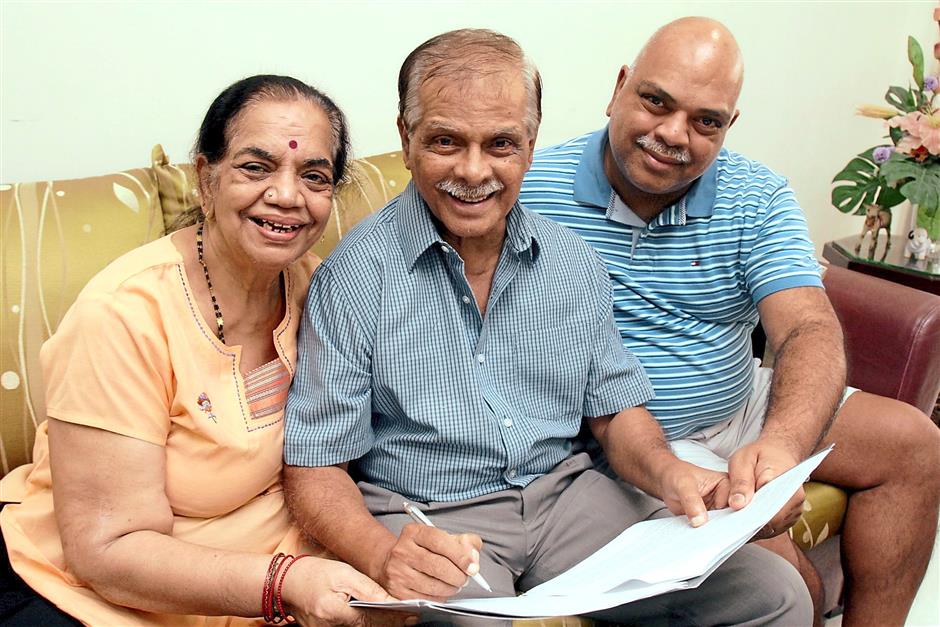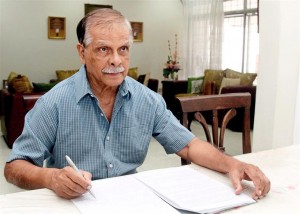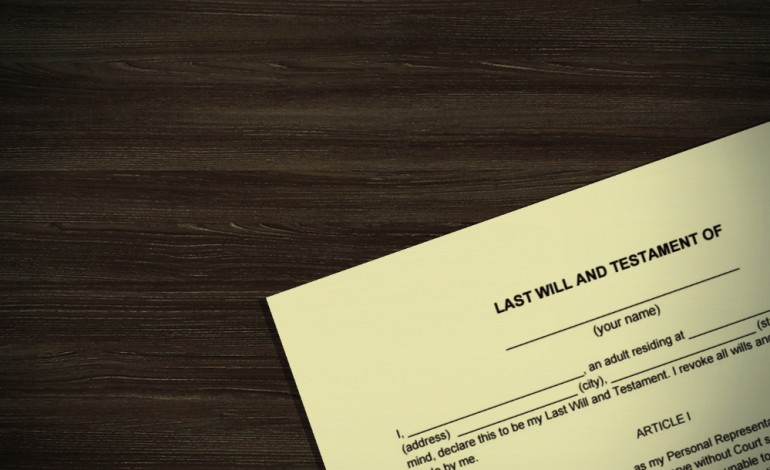Housewife K.G. Lim, 61, was devastated when her husband passed away after a heart attack in 2005. When she learnt that he died intestate, Lim felt her world had crumbled.
“As I tried to make sense of his death and manage our sundry shop business, I had to deal with legal issues as the bank accounts and shares were in our joint names,” recalled the mother-of-three from Kuala Lumpur.
Lim had planned to sell their house to finance her two children who were studying overseas then. But the house was jointly owned by Lim and her late husband, and without a will, the property could not be sold. Through a lawyer, Lim applied for a Letter of Administration from the High Court. When there is no will, one has to apply to the court to appoint an Estate Administrator to distribute the assets according to the Distribution Act 1958.
“Things became complicated as I could not sell the house. I was placed in a difficult predicament and had to dig deep into my savings to finance my children’s education. Relatives stepped forward to help me run our sundry shop. It was a challenging time for the family,” recalled Lim.
A year later, she managed to get the legal documents and eventually sold off her house to tide her over. It was a bitter lesson learnt and she now advises friends and relatives to prepare their wills.

“If my husband had prepared a will, I would have been spared the hassle,” said Lim, who wrote her will in 2006.
A will is the legal instrument that permits a person to make decisions on how his estate should be managed and distributed after his death. In a nutshell, it is a person’s last request before his or her death.
Will writing is one of the most important acts as it informs family members about how your estate (assets, money and possessions) will be dealt with when you are no longer around. Without a will, the law steps in to decide how your estate will be distributed and it may not be in line with your wishes.
A will is especially important if you have children or elderly parents who depend on you financially.
Everyone should be encouraged to write a will to protect their assets. You can go through a lawyer, a will writing agency or do it yourself.
It was a health scare that prompted senior lecturer Dr Manimekalai Jambulingam and her husband consultant Ponnusamy Rethinasamy, 74, to prepare their wills.
It happened after Ponnusamy suffered a heart attack in 1992. Thankfully he pulled through but it got Dr Manimekalai thinking about the importance of a will.
“I was only 36 when the medical emergency happened. It came as a shock and made us realise that life is short and unpredictable. Soon after, we decided to work on our wills,” said the mother-of-two who consulted a lawyer. The document, costing RM300, was prepared 23 years ago.
Now that she has prepared her will, Dr Manimekalai feels at ease knowing that her assets will be distributed according to her wishes. More importantly, it would be easier for her sons – both based in Britain – to inherit property without any conflict.
“Without a will, it would take between six months and two years for my children to inherit the property. It would cause unnecessary hassle for my children, and they would have to spend extra money and time to transfer the properties into their name,” said the 59-year-old.
Former Brigade Commander of the Police Field Force Datuk A. Navaratnam, 82, prepared his will in 1999. He explained that the will provides his three children who are overseas, with an idea of how he wants his assets disbursed when he is no longer around.
More importantly, with the will in place, the grandfather-of-six hopes there would not be any disputes among his children concerning his estate and how his wife, Kanga Ambujam Nadesan, 75, would be cared for.
“We have heard so many stories of long and bitter disputes over assets such as jewellery and property. I would never wish this to happen to anyone. My children have seen the will and are happy with how we want our assets distributed,” said the former commander of VAT 69 commando unit, who authored The Spear And The Kerambit, The Exploits of VAT 69: Malaysia Elite Fighting Force (1968-1989).
 Lawyer Ranuga Devy explained that wills, governed by the Wills Act 1959, could be prepared by anyone above 18 years. She pointed out that it is vital to prepare a will due to societal changes such as increase in divorce cases, one-parent families, couples living together and illegitimate children. Children who are born out of wedlock have a right to the property if they can prove that they are children of the deceased.
Lawyer Ranuga Devy explained that wills, governed by the Wills Act 1959, could be prepared by anyone above 18 years. She pointed out that it is vital to prepare a will due to societal changes such as increase in divorce cases, one-parent families, couples living together and illegitimate children. Children who are born out of wedlock have a right to the property if they can prove that they are children of the deceased.
“Couples living with more complex family scenarios should consider will writing, especially when one’s status in life changes. Couples who have young children and travel often should consider writing a will, too. Due to increase in calamities happening around the world, one should always be prepared. Couples with young children should appoint a guardian to care for their young ones if anything untoward should happen to them,” explained Ranuga.
So what are the documents needed to prepare a will? Ranuga said all assets that one wants to distribute must be included in the will. As such, it is best to see a lawyer or will writer who can explain the process of will writing in accordance with the law. This would include sale and purchase agreements, bank accounts (savings and fixed deposits), shares, bonds, and car loans.
While will writing may appear overwhelming, Ranuga assures us that it is not as difficult as it seems.
“The experts will do all that is necessary to ensure the will is written according to the requirements of the law,” said Ranuga, adding that the cost of will writing depends on the assets and the work involved in drawing up the will.
Even people with dementia can prepare a will upon the advice of a doctor. One of the conditions of writing a will is that the testator (person who wants a will written) must be of sound mind, which means that he should be able to understand what he is doing.
“People with dementia have memory lapses. A doctor will be able to test their state of mind when the will is drawn. Hence for such persons, it is best to have a doctor present when he attests the will.”
Despite the importance of will writing, Ranuga observes some Malaysians are superstitious about preparing the legal document.
“Some fear that will writing is a sign that death is near. Or that children want their hands on the property before a parent is dead,” said Ranuga, honorary secretary of Malaysian Healthy Ageing Society.
Will writing is also important for co-habitating couples who plan to marriage after a time. They should will their share of the property, otherwise it will fall under the Distribution Act 1958.
“The testator should review the will from time to time to update the will according to his status, as any property not in the will falls under the Distribution Act,” said Ranuga.
Wills can be updated by including a codicil which is an addition to the original will if one does not want to prepare a new will.
How to write a will
Before deciding to write a will, here are some of the things you need to consider:
Who to write your will?
Determine which lawyer or will writing firm you intend to go to, to prepare your will.
Appointment of executors
An executor is a person responsible for executing your will. Decide who you would like to follow through your last wishes. The executor can be a benefactor but cannot be a witness to the will.
Appointment of guardians
If you have young children, you might consider appointing guardians (relatives or close friends) to care for your children when you are no longer around.
Payment of debts and liabilities
If you have any debts or liabilities, write it down in your will to ensure your family knows payments that need to be settled. The lawyer who is writing the will would include the necessary phases. However, all debts have to be settled before the assets can be distributed.
Distribution of assets
Think carefully about how you intend to distribute your wealth. Do you want to transfer your assets to your spouse or divide it equally between your spouse and children?
Insurance policies and Employees Provident Fund account
Jot down the number of insurance policies in your name, EPF account, and instructions regarding the distribution of funds.
A testator can withdraw his nomination and request that his EPF money be distributed according to his will, which means the executor of the will has to obtain the probate from the court and produce it at the EPF office.
Witnesses
Ensure you have two witnesses present when signing your will.
Updating a will
Review your will every few years after any changes in your life such as marriage, divorce or birth of a child. You can appoint two executors to the will, in the event one of them dies before the will is proved.
Safe custody of will
Inform your family members where your will is kept. It is pointless to write the best will if nobody can locate it after one’s death.
